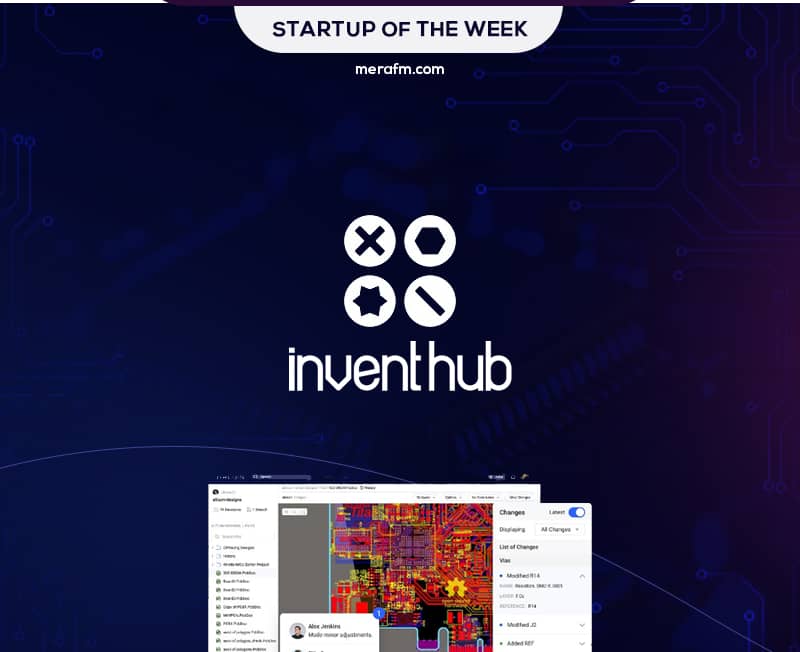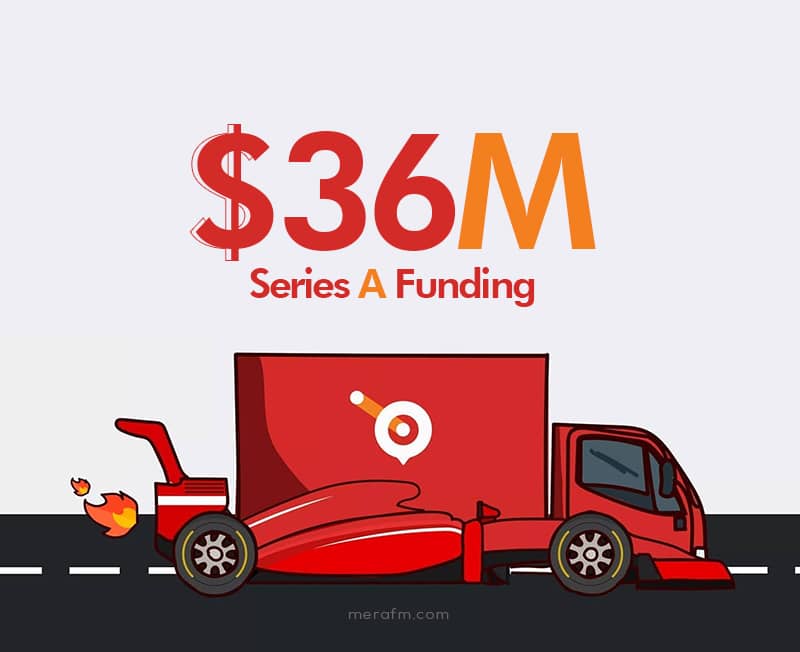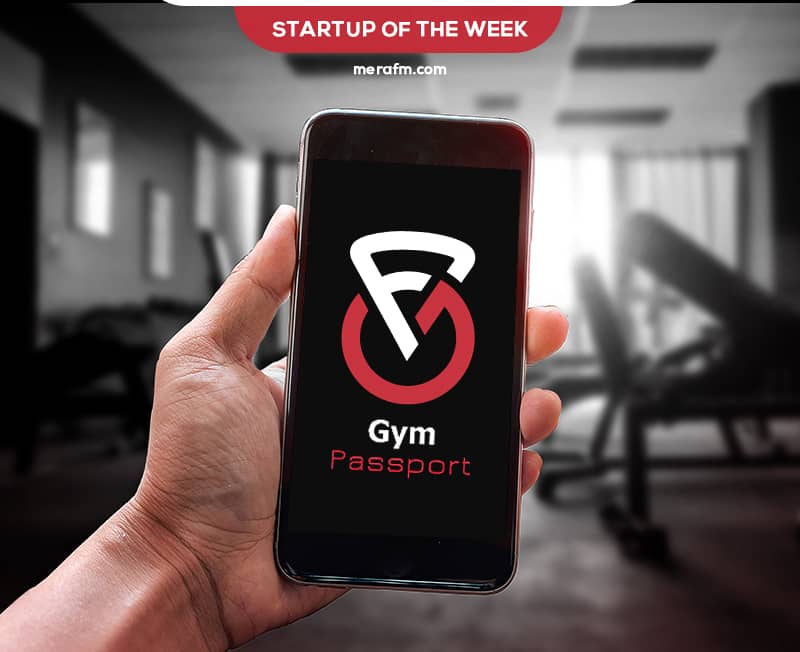
“If you don’t show up, we will assume you have resigned,” Elon Musk declares end to remote working at Tesla
No more remote working for Tesla anymore orders Elon Musk
Elon Musk, the CEO of Tesla, has ordered employees to return to the office full-time, stating that working remotely is no longer an option. Emails containing the new policy were released on social media. A request for comment from Tesla on the emails, one of which looked to be addressed to executives, was not returned to the news.
When challenged about the regulation, Mr. Musk stated on Twitter that anybody who doesn’t want to follow the new guidelines should “pretend to work somewhere else.”
Also Read: SpaceX signs blockbuster deal to send space tourists to the ISS
“Everyone at Tesla is required to spend a minimum of 40 hours in the office per week,” he wrote in one of the emails. “If you don’t show up, we will assume you have resigned.”
Also Read: SpaceX Falcon 9 rocket debris creates a beautiful light show around Oregon
I lived and slept in a factory, Elon Musk
Mr Musk is well-known for his feisty approach to work. He rarely takes vacations, and he once slept on the factory floor during a Tesla crunch a few years ago.
“The more senior you are, the more visible must be your presence,” he wrote in one of the emails on the remote work policy.
“That is why I lived in the factory so much – so that those on the line could see me working alongside them. If I had not done that, Tesla would long ago have gone bankrupt.”
Mr Musk has previously expressed reservations about remote labour. Stating on Twitter early this year that, “all the Covid stay-at-home stuff has tricked people into thinking that you don’t actually need to work hard. Rude awakening inbound!”
What did the emails say?
The emails said staff should report to work at one of the company’s main offices. It reads that, “not a remote branch office unrelated to the job duties”.
Mr. Musk further stated that any requests for exceptions to the policy would be reviewed by him personally. Furthermore, Mr. Musk stated that the company requires its factory staff to work full-time in the office. Also adding that in-person communication is vital to the company’s performance.
Also Read: Google moves to make Android apps more private
Moreover, “There are of course companies that don’t require this, but when was the last time they shipped a great new product? It’s been a while,” he said in an email, one of two that was leaked and shared on social media.
The company also added that, “Tesla has and will create and actually manufacture the most exciting and meaningful products of any company on Earth. This will not happen by phoning it in.”
The future of remote working is in shambles?
Many sectors are debating whether or not to continue with the remote work techniques that exploded during the coronavirus outbreak.
Some industries, such as banking, have stated that employees will be expected to return to the office. Meanwhile, others, such as the computer industry, have stated that remote work will be permitted indefinitely. Many places have chosen a hybrid approach.
Have something to add to the story? Comment down below!

Russia bans Instagram and Facebook
Russia bans Instagram and Facebook
Meta (FB.O) was found guilty of “extremist activity” by a Moscow court on Monday. However, the judgment will not affect its WhatsApp chat service. Instead of focusing on the US firm’s already banned Facebook and Instagram social networks.
Meta’s stance over the Russian ban on Instagram and Facebook
Meta did not reply to demands for comment after the Tverskoi District Court in Moscow announced in a news release. It had upheld a complaint filed by state prosecutors to prohibit the company from conducting business in Russia.
According to the Interfax news agency, Meta’s lawyer Victoria Shagina had previously informed the court that the company was not involved in extremist activities and was anti-Russophobic. It was unclear whether Meta will challenge the ban on Facebook and Instagram activities in Russia. This was “on the grounds of realizing extremist activity,” which judge Olga Solopova told TASS would be implemented immediately.
Also Read: Google moves to make Android apps more private
Russia had previously labeled groups such as the Taliban and Da’ish as “extreme,” but has now broadened this to include the Jehovah’s Witnesses and the Anti-Corruption Foundation of jailed Kremlin critic Alexei Navalny.
How many users are affected?
According to researcher Insider Intelligence, Facebook had 7.5 million users in Russia last year and WhatsApp had 67 million, while Instagram has stated that the ban will affect 80 million users in Russia.
Facebook was first blocked in Russia for blocking access to Russian media, while Instagram was disabled after Meta claimed it would allow Ukrainian social media users to post messages advocating violence against Russian President Vladimir Putin and the forces Moscow launched into Ukraine in February 24.
Have something to add to the story? Comment down below!

Google moves to make Android apps more private
Google Android expands the privacy of its apps
Google has expanded its strategy to limit data tracking on its Chrome browser to include apps on its Android-based smartphones.
Its Privacy Sandbox project tries to limit the amount of data that advertisers can collect from users. Rival Before tracking users, Apple now requires app developers to obtain their permission.
The announcement will come as a shock to companies like Meta, which rely on their code being embedded in apps to track customer behavior.
Apple’s adjustments, according to Meta, will cost the company $10 billion (£7.3 billion) this year. Around 85 percent of smartphone users worldwide utilize Google’s Android operating system.
Changes in Google Chrome
Third-party cookies, which target advertisements based on people’s surfing history, will be phased out of Google’s Chrome browser by 2023.
Google Android privacy
Google announced in a blog post that it is now expanding its Privacy Sandbox to Android apps and is working on methods to minimize data sharing and “run without cross-app identifiers, including advertising ID.”
Furthermore, apps collect information using these identifiers, which are linked to cellphones. Google said it will keep them in place for at least two years while it works on a new approach “with the industry.”
“We’re also looking on technologies that lessen the risk of covert data collecting, such as safer ways for apps to integrate with advertising SDKs,” it continued. The IT giant did not specify how it intends to accomplish this.
Also, in April of last year, Apple ruled that app developers must explicitly seek consumers for permission to use IDFA (Identifier for Advertisers). Moreover, according to data from advertising firm Flurry Analytics, which was disclosed by Apple, US customers choose to opt out of monitoring 96 percent of the time.
Google’s blog did not name Apple, but referred instead to “other platforms” which it said, “have taken a different approach to ads privacy, bluntly restricting existing technologies used by developers and advertisers”.
“We believe that – without first providing a privacy-preserving alternative path – such approaches can be ineffective,” it added.
Also Read: Apple’s iPhone 13 leads to the largest revenue, but should you buy it?
Google, unlike Apple, relies on advertising revenue. Furthermore, Google’s efforts to provide third-party cookie replacements for its Chrome browser haven’t gone altogether smoothly.
Have something to add to the story? Comment down below!

Tech Tuesday Start Up of the Week: InventHub
What is cloud collaboration?
Cloud collaboration is for employees to collaborate on documents and other data types that are stored off-premises and outside the company firewall. Employees share, edit, and collaborate on projects using a cloud-based collaboration tool. Collaboration in the cloud allows two or more people to work on a project at the same time.
A cloud collaboration project starts when one person generates a file or document and then grants access to specific people; for example, the project creator may post a link to the project so that others can read and modify it. Users can make changes to the document at any moment. Even if they are reading and working on it at the same time. Every user sees the same version of the project because all modifications are stored and synced. InventHub, a Pakistani firm, is also working on a similar cloud collaboration principle. Let’s learn more about it.
What is InventHub?
The electronics manufacturing business is being disrupted by InventHub, an American SaaS (software as a service) startup. It offers a cloud-based collaboration platform. Users can utilize this platform to increase productivity, maintain quality, and commercialize goods more quickly.
Inventhub, led by Pakistani visionaries Usama Abid and Usman Maqsood, is up against industry behemoths worth billions of dollars, yet it aims to fundamentally change how electrical technology is designed.
What sets InventHub apart?
Inventhub sets itself apart from the competition with its unique developer utilities and integrated multi-stakeholder collaboration platform, which allows product teams to collaborate in real-time and commercialize their innovations more quickly.
Fits into your workflow
You may use Inventhub to collaborate on your PCB design projects in the cloud by connecting your ECAD design tools. In addition, git version control is used. Use our dedicated toolkit to create a Bill of Materials and gain supply-chain insights. You can also construct your own design projects and a database of electronic components.
Before starting Inventhub, Usama founded DIY Geeks, a robotics education firm in Pakistan that was a pioneer in a country where robotics is still in its infancy compared to other regional countries. Usama now oversees a team of more than ten employees tasked with reshaping the electronics manufacturing industry.
Inventhub has already made waves, with over 6000 active users and several companies purchasing their product, demonstrating its potential as a significant disruptor.
A new change!
As a result of these purchases, the electronics business is quickly expanding, and Inventhub is well-positioned to fundamentally disrupt how electronics are developed.
The exponential rise of digital products built for markets like consumer products, robots, IoT, medical devices, and energy has necessitated the use of remote-based electronics design resources.
Last but not the least, if you like this article, find out more startups in our segment Tech Tuesday. If you want your startup to get featured, contact us.

Retailo raises $36 million in a Landmark Series A round
Retail in the MENAP region
Unlike Europe and North America, grocery shopping throughout much of Asia and the Middle East isn’t usually centered on big-name supermarket chains. Instead, a typical grocery store will likely include visits or phone calls to several different small businesses. Each of which is run independently and specializes in selling a single product category such as dairy, meat, or fruits and vegetables.
While supermarket conglomerates have their own supply chains and logistics, smaller mom and pop’ firms must conduct their own procurement. This usually entails a series of regular excursions to various cash-and-carry locations or farm wholesalers. Which costs sellers both money and time.
Retailo Technologies
Retailo, situated in Riyadh, was founded in early 2020, right in the middle of the Covid-19 outbreak. It was formed to offer financial and logistical efficiency to this extremely fragmented supply chain. It’s built an online B2B marketplace to assist sellers to connect with suppliers and getting the best deals on inventory for their store locations. It was founded by Talha Ansari, Muhammad Nowkhaiz, and Wahaj Ahmed — former executives from regional ride-hailing giant Careem.

Retailo raises $36million in Series A round
RIYADH, Saudi Arabia: Retailo, the fastest-growing b2b online startup in the Middle East, North Africa, and Pakistan (MENAP), has raised $36 million in a Series A investment round that included a mix of equity and ventures debt. Retailo is a MENAP-based regional B2B marketplace that has raised $45 million in less than 1.5 years of operation, a record for any startup in the region.
Retailo, changing dimensions of b2b marketplace
Retailo’s Series A round attracted top investors with a track record of making significant investments. Graphene Ventures, based in Silicon Valley, led the investment, having previously invested in digital titans Snapchat and Lyft.
500 Global, Agility, Aujan, Tech Invest Com, and Mentor’s Fund are among the key investors in Retailo’s Series A. All of whom have important exposure and investments in the retail industry’s digital firms. Moreover, the venture debt was raised from Nahda Fund. It is one of the first venture debt funds in the Middle East, which is supported by Hong Kong-based IMM Investment Global. Shorooq Partners, Abercross Holdings, Arzan VC, and AgFunder all participated in the round as repeat investors, demonstrating their continued confidence in Retailo’s performance.
Also Read: Tech Tuesday Start up of the Week: Retailo Technologies
In MENAP, retail is a $500 billion industry with over 10 million small companies. It is serving a population of over 700 million people. The majority of this retail industry, however, is unorganized and undigitized. Additionally, small enterprises should operate on unattainable margins while relying on inefficient supply systems and inadequate financial resources.
Expansion into new markets
Retailo will use the Series A capital to continue its expansion into new markets, verticals, and products. On the occasion, Retailo’s CEO said, “As global supply chains come under stress pushing up commodity prices and depressing GDP growth, the value of smart supply chains becomes even more important.”
Furthermore, he added. “In MENAP, the retail sector serves 700 million people, contributes over 20% of GDP, and employs tens of millions. We are not only saving lives but also the economy of the broader MENAP area by delivering technology solutions to an underserved market.”
Have something to add to the story? Comment down below!

Apple’s iPhone 13 leads to the largest revenue, but should you buy it?
Despite the continuous spread of the coronavirus pandemic and supply chain problems, Apple’s iPhone 13 celebrated its 15th year on the market with its highest sales ever, helping to propel the tech giant’s sales and profits to all-time highs.
Apple iPhone 13 still going strong
Apple’s smartphone line, which includes the $699 iPhone 13 Mini and the $1,099 iPhone 13 Pro Max, was in such great demand for the three months ending in December that sales increased by more than 9% to $71.6 billion. That accounted for more than half of the company’s total revenue, which increased by double digits to $123.94 billion from the previous year.
Read More: Everything you need to know about the iPhone of the year iPhone 13 Pro!
Apple CEO Tim Cook stated that the iPhone had a top market share in a number of countries, including the United States and Australia, where it ranked among the top five, China, where it ranked fourth, and the United Kingdom, where it ranked second and third.
“We knew that we had the beginnings of something fundamentally transformative,” Cook said in a conference call with analysts, remarking on the iPhone’s 2007 launch. “None of us could have predicted the incredible and meaningful impact it would have on all of our lives.”
Also Read: Gmail hits 10 billion installs on Android
The Apple iPhone 13 missing features
However, not all of these businesses have been as successful as others. Sure, iPhones are fantastic, but there are some functions that are lacking. Apple’s iPhone 13 series has a lot to offer over its predecessors, including longer battery life, improved cameras, a new Cinematic Mode, and extra base-level storage space.
Although the iPhone 13 has a lot to like, it lacks a few things that we had anticipated to see from Apple’s latest smartphone. Many of these capabilities may be found on Android competition, while others are only available on Apple devices.
USB cable support
Wouldn’t it be fantastic if you could charge your iPhone and other devices in your home with the same charger? However, Apple’s latest iPhone 13 series lacks USB-C compatibility once again. The latest iPhones, as has been the case since 2012, require Apple’s proprietary Lightning cable for electrical charging. Not only will you be unable to charge your iPhone with chargers from other devices, but chargers from other Apple mobile devices may also be incompatible with your iPhone.
In-screen fingerprint
Face ID is generally reliable, however, it would be wonderful to have the option of unlocking your iPhone using your fingerprint as well. This has been especially true in the last year and a half because Face ID can’t reliably identify you when you’re wearing a mask. If you don’t have an Apple Watch, you’ve undoubtedly typed in your passcode a lot more than usual in the last year.
Also Read: Top 10 Pakistani startups of 2021
Satellite connectivity
In the weeks leading up to its release, one of the most popular rumors regarding the iPhone 13 was that it will include satellite connectivity for sending texts in emergency situations. That hasn’t proven to be the case, at least not yet.
Wifi 6E support
Wi-Fi 6E is a relatively new technology that isn’t yet considered essential. However, given that many people purchase an iPhone 13 with the goal of keeping it for several years, Wi-Fi 6E capability in at least the Pro and Pro Max models would have been beneficial.
Have something to add to the story? Comment down below!

Tech Tuesday Start up of the Week: Gym passport
The popular gym culture
Gyms and fitness centers are quite popular in Pakistan; they allow people to maintain a healthy lifestyle by paying a monthly fee. With the difficulty to truly commit to such a lifestyle, issues like travel, cost, and feasibility arise and persist for the majority of people. This even includes certain establishments that charge exorbitant fees for their services. A Pakistani firm called ‘Gym Passport’, on the other hand, attempts to solve all of these problems with a single mobile application.
Gym Passport
Gym Passport’s concept is simple: it allows customers to work out at any facility in the country at any time without having to pay for a separate gym if they are traveling or just relocating within the country. The Gym Passport app is a one-stop-shop for paying your monthly subscription and checking into any gym or fitness facility. What’s even more intriguing about this app is that you can pay for your gym membership using a debit or credit card, and you may choose from a variety of packages.
Yousuf Ali and Umer Aslam co-founded the startup, which offers access to over 300 gyms and fitness clubs in 10+ cities throughout Pakistan and has strategically partnered with well-known companies like Foodpanda, Daraz, Jugnu, Xavor corporation, United Bank, Giftkarte, Marham, and others.
Features of Gym Passport
The Gym Passport app comes in three different packages: Lite, Standard, and Pro, each with a different pricing range and access to a different set of gyms and training facilities. The Lite package provides access to over 150 gyms across Pakistan, the Standard package provides access to nearly 250 gyms, and the Pro package provides access to over 300 gyms across Pakistan.
Check-ins at gyms work by scanning a QR code from the app, according to the business, which is a big time-saver for gym owners because it eliminates the need for notebooks or keeping track of who actually checked in.
How can you get a membership with Gym Passport?
Gym Passport is a free app that can be downloaded on both Android and iOS. Furthermore, there are no registration fees when you sign up because all you need is your email address and phone number. Moreover, after you’ve signed up, you can choose from any of the app’s packages. Click here for more information on the app.
Last but not the least, if you like this article, find out more startups in our segment Tech Tuesday. If you want your startup to get featured, contact us.

Google testing new “Self Share” feature in Chrome OS
Google tests new Self Share feature in Chrome
Google recently announced the addition of Fast Pair to Windows PCs. That allows users to quickly pair Bluetooth devices, sync text messages, and share files via the Nearby Share service. According to reports, the internet giant is working on a new feature for its Nearby Share tool. Self Share is the name of the new utility. And it will allow users to quickly send files to themselves across their devices, as the name suggests. Google Self Share allows you to distribute files to yourself without using email or online storage. For data transfer to Chrome OS or Android devices, the feature is expected to use Bluetooth or Wi-Fi.
Also Read: Gmail hits 10 billion installs on Android
How will Google Self share feature work?
Google’s Nearby Share feature will reportedly be updated to allow users to share files to their own devices. An experimental flag in the Chromium Gerrit was discovered by Chrome Story. This indicates the addition of a new Self Share tool in the Nearby Share. According to the source, the latest update would enable users to use the Nearby Exchange technique to share files between their own devices. The Nearby Share menu is rumored to contain a new “Send to Your Devices” option once the feature is available.
According to a report from Chrome Unboxed, the Self Share feature will go through the Chrome OS Canary developer flag stage before being sent out to the general public. And will then hopefully find its way to platforms other than Chrome OS.
Google Nearby Self Share for Android handsets
In 2020, Google announced the Nearby Share file sharing platform for Android handsets. Any two phones running Android 6.0 or higher can use this to easily transfer files. Apple’s AirDrop file-sharing tool is similar to this feature.
Later, the business extended it to Google Chrome for Windows users. Since then, Google has been hard at work improving Nearby Share to compete with Apple’s AirDrop. The Nearby Share feature chooses the appropriate protocol for sharing files. Which could be Bluetooth, Bluetooth Low Energy, WebRTC, or peer-to-peer Wi-Fi.
Additionally, Google just announced that it is collaborating with Acer, HP, and Intel to bring the Fast Pair and Nearby Share experiences to select Windows PCs later this year at CES 2022.
Have something to add to the story? Comment down below!

Tech Tuesday Start Up of the Week: Krave Mart
What is q-commerce?
Q-commerce (‘quick commerce’) is e-commerce in a new, speedier form. It is commonly referred to as ‘on-demand delivery.’ And also e-grocery. It also blends the benefits of traditional e-commerce with last-mile delivery advancements.
The principle is substantially the same, with the key difference being the speed of delivery. To be competitive, delivery is measured in minutes rather than days.
Also Read: Tech Tuesday Start up of the Week: PostEx
This has broadened the range of products that people can order. This includes perishable commodities, such as groceries, being a big area that q-commerce companies cater to. It is more likely to concentrate on the micro – smaller quantities of fewer things. For instance, a missing component for a recipe that’s already in the works.
Benefits of Quick Commerce?
There are four ways that q-commerce differentiates itself from traditional shops in the eyes of customers…
- Speed
- Guaranteed availability of products
- Around the clock operation
- Ease
Compared to a conventional retail outlet, q-commerce companies are able to get goods to customers in a fraction of the time.
Furthermore, these stores are not bound to specific daily opening hours like physical and mortar merchants are. They can operate 24 hours a day, 365 days a year, and with ease. You can simply place an order by pressing a few buttons in an application.
Similarly, a Pakistani startup introduces q-commerce in the tech world for the first time. The start up ‘Krave Mart’ builds and revolutionizes q-commerce by delivering products swiftly.
Also Read: Tech Tuesday Start up of the Week: Rider
Krave Mart
Kassim Shroff, Hammad Bawany, Haziq Ahmed, and Ahsan Kidwai, all from Karachi, founded ‘Krave Mart’ in November 2021. The group is harnessing its passion to suit the demands of a tech-savvy youth that is accustomed to instant deliveries.
Additionally, Krave Mart is dedicated to putting the needs of its customers first. And delivering high-quality products in 10 minutes or less. They also hope to reclaim some of the time customers would spend going to the food store in their neighborhood.
Krave Mart, which began operations in December, already serves 25% of Karachi’s population, with the goal of reaching 100% by January 2022 before expanding to other cities.
Currently, the firm’s product catalog includes food, personal care goods, health and beauty products, and other everyday essentials. All of which are “promised to be delivered in 10 minutes through a network of dark storefronts,” according to the company.
Krave Mart raises $6m pre-seed funding
Krave Mart received $6 million in pre-seed capital less than four months after launching. China’s MSA Capital and Russia’s ru-Net lead the investment, which was co-headed by German Global Founders Capital and Islamabad-based Zayn Capital.
Saison Capital, +92Ventures, 2 AM, Mehta Ventures, Jeddar Capital, Lakson Investment, and other strategic angel investors were among the other investors.
Krave Mart aspires to create a long-term business model that begins with groceries. And gradually expands to include fashion, beauty, electronics, and other categories that are highly customized to the location and consumer.
Last but not the least, if you like this article, find out more startups in our segment Tech Tuesday. If you want your startup to get featured, contact us.

TikTok ranked third most downloaded app in Pakistan
TikTok ranked third most downloaded app in Pakistan
App for sharing short videos despite being restricted in Pakistan for over five months owing to “immoral and obscene” material, TikTok was the third most downloaded app in Pakistan in 2021.
According to data provided by SensorTower’s Mobile Insights Strategist Craig Chapple, the Chinese-owned app was downloaded 26.5 million times in the previous year.
Also Read: TikTok launches new transparency center to share insights into content removal
Due to “immoral and lewd” content, the app was restricted in the country for nearly five months.

Pakistan’s most downloaded app 2021
Facebook stands at a whopping 30,000,000, Snack Video stands at 27,600,000, TikTok stands at a 26,500,000. The chat messenger app WhatsApp stands at 20,600,000, Snapchat at 19,700,000, Messenger 18,000,000, Likee 13,200,000, picture sharing app Instagram at 12,800,000 and Bigo Live at 7,500,000
With 30 million downloads, Meta-owned Facebook topped the list for social media apps, while Snack Video came in second with 27.6 million downloads. WhatsApp was the only other social media app with more than 20 million installs.
19.7 million, 18 million, 13.2 million, 12.8 million, 7.5 million, and 7.4 million people downloaded Snapchat, Messenger, Likee, Instagram, Bigo Live, and Imo, respectively.
Also Read: TikTok tests vanishing video stories feature similar to Snapchat, Facebook and Instagram
TikTok stands third in Pakistan
The following is a list of app rankings in general:
Facebook – 30,000,000
Snack Video – 27,600,000
TikTok – 26,500,000
WhatsApp – 20,600,000
Snapchat – 19,700,000
Messenger – 18,000,000
A worldwide trend
With 739.8 million downloads in 2021, Tiktok topped the global list of most downloaded applications, followed by Facebook (619.2 million), Instagram (615.6 million), and WhatsApp (481.2 million).
TikTok – 739,800,000
Facebook – 619,200,000
Instagram – 615,600,000
WhatsApp – 481,200,000
Messenger – 404,600,000
So what was your favorite app? and have you downloaded TikTok yet?
Have something to add to the story? Comment down below!




